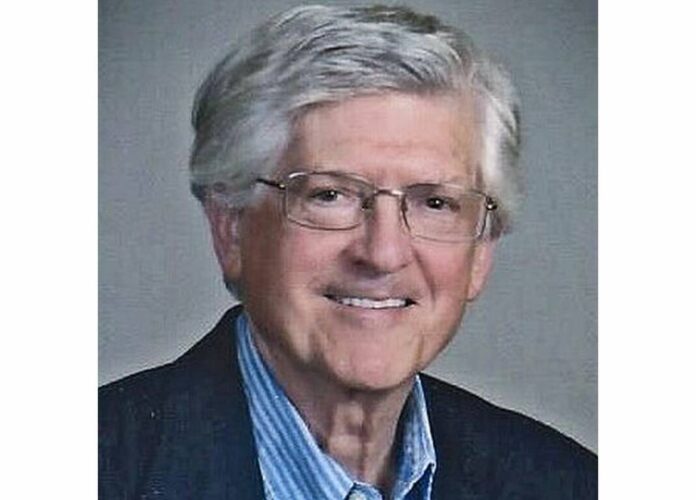Historian Barbara Tuchman titled her book on World War I “The Guns of August,” for it was on the first of that month 109 years ago that Germany declared war on Russia. Over the course of four years, appalling horrors emerged: 20 million deaths during a war whose front extended from the English Channel to Switzerland.
In a genuine sense, the European state system built after the Napoleonic wars had collapsed: Germany had risen to power, Austria-Hungary had grown weaker, Britain was undergoing a relative decline that was not yet readily apparent, and Russia would break down during the world war. The absence of a power balance in Europe invited outside nations to play a new role.
Into that arena entered Woodrow Wilson. He had been president of Princeton University and governor of New Jersey. Elected U.S. president in 1912, this brilliant and somewhat overbearing man had an impressive beginning in office, counting many reforms among his achievements: a child labor law, an eight-hour day for railroad workers, lower tariffs, and the establishment of the Federal Reserve System.
A reformist in sentiment, Wilson saw an opportunity to reform the world – but could pursue that only if he headed a belligerent power. For two and a half years he pursued a complex policy of “neutrality,” all the while hoping that world power politics could be submerged by a larger vision of an international community operating along common values. With the disastrous war stalemated on the western front, and Germany’s new submarine policy to sink American ships, Wilson went before Congress in April 1917 to declare that “the world must be made safe for democracy.” Congress then voted for war.
In many ways Wilson proved an effective war leader, especially on mobilization, yet he overreacted in attempting to control citizen thought and expression, even outlawing dissent. That may well have reflected personality disorders of long standing, which came to a head when negotiating peace after the armistice of November 1918.
Anticipating a leading role in peace negotiations, he had prepared a list of war aims. The Fourteen Points included proposals for postwar boundaries in Europe, the right of all people to self-determination, freedom of the seas and reduced armaments. Foremost among them was a League of Nations to promote international cooperation and guarantee the territorial integrity of member states. In Wilson’s highly moral vision for the world, it was the only sure road to a lasting peace.
At the Paris Peace Conference he had to negotiate with other powerful leaders with differing views. They had their own ideas of national security, and could be obstinate in defending them. After months of heated arguments, however, Wilson secured British and French commitment to a peace treaty that included the League of Nations.
Returning home he found strong opposition from Republican leaders, none of whom he had taken to Europe with him. Fierce opposition arose to Article X of the League covenant that called for collective security. Senate opponents interpreted it as an end run around congressional authority to declare war, and submitted amendments that supported the League yet weakened its war-making authority.
To force their hand, in September 1919 Wilson undertook a speaking tour of the country and delivered 40 speeches in 23 days. Bone tired, in Pueblo, Colorado, he collapsed. The presidential train raced back to Washington with window shades drawn; Wilson walked off on his own, but several days later was found unconscious on a White House bathroom floor, having suffered a major ischemic stroke. He did not sit up for over a month, lost the use of his left arm and some vision in both eyes.
For the last year and a half of Wilson’s term, the country effectively was without a president. Without explicit constitutional guidelines on what to do, his condition was shrouded in secrecy from the public and Congress as his wife Edith managed many White House affairs and decided what communications she would share with the president.
Given his illness, and stubborn personality, the president was unwilling to negotiate with senators who supported the League but only with amendments that protected American sovereignty. Having instructed Democrats to vote against all amendments, the treaty died. In a memorable phrase, historian Thomas A. Bailey concluded that “with his own sickly hands, Wilson slew his own brain child (the League of Nations).”
It would be decades before the passage of the 25th amendment to the U.S. Constitution, which provides guidelines on what to do when the president is unable to discharge his duties.
The 25th amendment is not an urgent issue just now, though its use has been bandied about regarding both President Joe Biden and former President Donald Trump. Were either to be elected president again, Biden would be 86 upon leaving office; Trump would be 82. The president has a stiffened gait, at times mumbles words and momentarily appears unclear where to head next. The former president exhibits sociopathic behavior that frequently lands him in serious trouble.
It is probable in the coming months that the matters of age and suitability for office will generate growing interest.
Ron Lora, a native of Bluffton, is professor emeritus of history at the University of Toledo. Contact him at [email protected]. His column does not necessarily reflect the opinion of The Lima News editorial board or AIM Media, owner of the newspaper.







